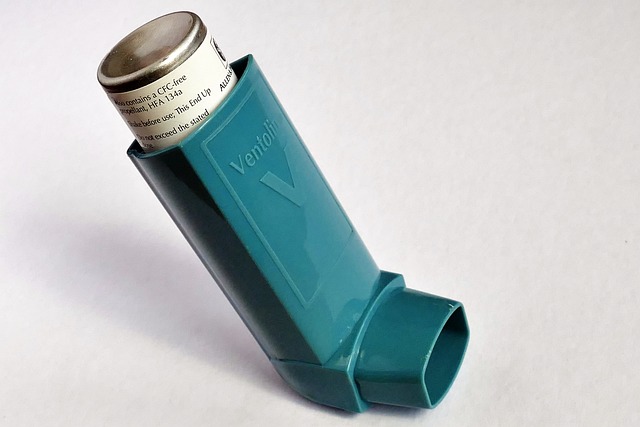
Asthma can make it difficult for you to live an even semi-normal life. The fact that even something as simple as going for a walk can cause complications leaves you feeling incapacitated. But, to make matters worse, there is no cure and its symptoms are hard to manage. This article provides some methods of preventing your asthma symptoms for taking over your life.
Do you know what type of asthma you have? When you’re informed about your asthma, you’ll be able to do more to cope with the illness and prevent it from having a negative effect on your life. If people who have asthma suffer attacks triggered by exercise, they should bring an inhaler with them when they work out. You can actually start preventing asthma attacks if you are aware and mindful of any patterns that your symptoms present.
If you are an asthma sufferer, it is crucial that you don’t smoke. Smoking is unhealthy for anyone, but it is especially dangerous for someone with asthma. This is because your lungs and airway are already compromised by your condition.
If your child or another loved one suffers from asthma, you should be sure to never smoke cigarettes when you’re near them. Secondhand smoke is one of the leading culprits that causes asthma. Also, do not let your child around others who smoke.
Know situations and conditions that cause asthma attacks for you, and stay away from them in the future as much as possible. Perhaps you have allergies or are sensitive to dust and pollen. For others, physical activity can irritate them. Try to determine your asthma triggers, so you can avoid them and prevent attacks.
Be sure to avoid cigarette smoke if you have asthma. Refrain from smoking! Avoid vapors and chemical fumes from cigarettes. A severe asthma attack can be life threatening. If people are smoking around you, remove yourself from that area quickly.
If you are having an asthma attack (mild or moderate), you need to try to force air out of the lungs. Exhale hard and fast. It can’t be said too strongly: you must force the air out! Take three short breaths, then one last deep breath to ensure your lungs have enough air, then forcefully breath out. This will force you to pay careful attention to all of your breaths. It also will push all of your air out of the lungs so that you can get more air in. If you cough up mucus, don’t worry – just get the breathing back to normal.
Asthmatics should have a flu shot every year to prevent contracting a serious respiratory infection. Keep yourself healthy, and without respiratory infections as best you can. This includes taking standard precautions against illness, like hand washing, as well as getting vaccinations that can keep you from getting sick.
Respiratory Infection
When suffering from asthma, make sure to choose products that are unscented. Products that contain strong scents, like incense, perfume, or air freshener can trigger an asthma attack just by lingering in the air. New carpet and fresh paint can also emit odors that can irritate the airways. Aim to keep the air as fresh as possible indoors.
Asthmatics should have a flu shot every year to prevent contracting a serious respiratory infection. You do not want to have a respiratory infection if you have asthma. This includes preventive measures against sickness, such as practicing good hygiene and getting all recommended vaccinations.
You should know what triggers your asthma attacks; this will allow you to either avoid them or be ready to manage the symptoms. If you have asthma, it’s most likely triggered by things such as being around animals or pollen. Most asthmatics also can’t tolerate smoke. It is best to do all that is possible to avoid triggers that can cause attacks.
If you suffer from asthma, be sure your diet includes lots of Vitamins C and E. They help to increase the function of the lungs and control the overall symptoms of asthma. It is possible to acquire the necessary amounts by eating foods or by taking dietary supplements. These vitamins can also boost the immune system and help prevent asthma attacks.
Keep your medication with you, especially when you are traveling. Traveling is hard on your body, opening you up to an asthma attack. You also have less control of your surroundings while you are away from home, so it is difficult to avoid potential triggers and to maintain control over your attack.
You should understand what triggers your asthma attacks in order for you to avoid these causes or prepare yourself for managing your symptoms. Some common asthma triggers include pet dander, pollen, and cigarette smoke. Whenever you can, just steer clear of these triggers when you know what they would result in.

To stay out in front of your asthma, make sure that you see the doctor to receive regular checkups. Flare-ups can occur at any time; plus, your doctor may have a new medication that he or she can offer you that will make your treatment safer and more effective.
When the weather starts to turn colder, wear a scarf or shawl that covers your mouth and nose to help prevent asthma attacks. This warms the air before you bring it into your lungs. Breathing cold air can set off an asthma attack, particularly in small children who have have somewhat severe asthma.
During cold months, you could avoid asthma attacks by constantly wearing a shawl, muffler or a scarf that covers both your mouth and nose. This will warm the air before it enters your lungs. Cool air has been known to trigger an asthma attack, particularly in very young children who have severe or moderate asthma.
A lot of times asthma will develop over time, and has symptoms that aren’t always obvious. In fact, some people who didn’t even realize they had asthma died as a result of their initial attack. Because of this, if you notice that you have trouble breathing or are constantly coughing, you may want to visit your doctor. They can tell you if you have asthma and if there is a medication that you should be taking. Your doctor can also tell you if there is something you can do to prevent asthma from developing.
Be sure you understand how to use your asthma medication, especially emergency medication. Asthma is usually treated on two fronts. One is a standard medication, taken daily, and the other is an inhaler, intended for use in an emergency. Because you will have asthma for the rest of your life, it is important that you take your maintenance medication properly, and that you use your emergency medication correctly.
Monitor how often, per week, you find it necessary to use your inhaler. If you are using it more than twice, your asthma may not be as well-controlled as you think or you may be experiencing unusual circumstances bringing on more frequent attacks. Counting how many times you reach for your inhaler can be a good aid to remind you of what environments you need to control and what else you may need to manage.
Asthma often takes time to develop, the symptoms appearing slowly. In fact, some people who didn’t even realize they had asthma died as a result of their initial attack. If you have any trouble catching your breath or a cough that won’t go away, consider talking to your doctor to make sure that you aren’t afflicted with asthma. If you are, you’ll need to keep an inhaler with you at all times and possible take other medications.
Do not smoke! Smoking is one of the worst things a person with asthma can do. Smoke is an irritant to sensitive lungs, ans asthmatics should neither smoke nor be around people who’re smoking.
You can use the preventative inhaler daily, but know that it can cause mouth infections near your gums and teeth. Always clean your teeth and rinse your mouth after you use your inhaler.
The only way that you should use a vaporizer or humidifier when you have asthma or allergies is if it has been cleaned thoroughly. Bacteria breeds in moist environments and can build up in dirty machines, pumping allergens into the air.
Asthma sufferers should avoid close contact with all animals. Even people that do not have allergies are prone to suffer an asthma attack from the pollen and dust on animals.
When you suffer from an asthma attack, be sure to remain calm. You should use your inhaler immediately upon the first signs of an attack. Once you have used it, use it again 30 seconds later. If the attack gets worse doesn’t get better, then get help immediately. Get somebody to phone for EMS or even transport you themselves to the nearest emergency medical facility. Slow your breathing by inhaling and exhaling into a paper bag while you are waiting for help.
Allergens and asthma triggers, such as dust and pollen can cling to your bed linens. Wash sheets on a weekly basis to rid them of allergens. Use hot water to wash the sheets. You should also wash pillowcases. You’re less likely to have an asthma attack while asleep or upon first waking up if your bedding is fresh and clean.
As stated in this article, the effects of asthma can be a very harmful medical condition that nobody should ever take lightly. Do everything you can to keep your asthma symptoms under control. If you’re having frequent asthma attacks or are otherwise bothered by your asthma, see your doctor as soon as possible for additional help. You can use the information that has been provided to take charge of your life and reduce the control asthma and it’s symptoms have over you.
Stop smoking. Most people are aware of the dangers of smoking, but for someone with asthma, the consequences are even more serious. Sensitive asthmatic lungs are easily irritated by smoke, so they need to avoid smoking and to avoid situations where there are people who smoke.
